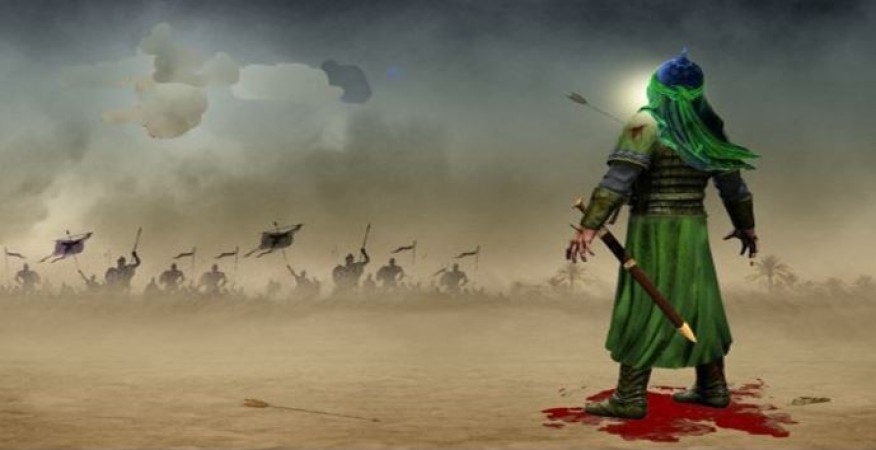
Imam Hussain, the grandson of Prophet Muhammad and the son of Imam Ali, was killed on the 10th of Muharram, known as Ashura, in the year 680 CE (61 AH). The event is known as the Battle of Karbala.
The reason behind the killing of Imam Hussain was rooted in a power struggle for leadership and political control of the Muslim community. After the death of his father, Imam Ali, and his brother, Imam Hasan, Hussain refused to pledge allegiance to Yazid ibn Muawiya, who was the Umayyad caliph at that time. Hussain believed that Yazid's rule was unjust and did not align with the principles of Islam. He also feared that Yazid's oppressive regime would lead to corruption and the distortion of Islamic teachings.
As Hussain, along with his family and a small group of followers, traveled to Kufa in Iraq to stand against Yazid's rule, they were intercepted by Yazid's forces in the desert of Karbala. Despite being heavily outnumbered, Hussain and his companions refused to bow to Yazid's demands to submit to his authority.
On the day of Ashura, Hussain and his followers were surrounded and subjected to a brutal siege. Despite their bravery and determination, they were eventually overwhelmed, and Imam Hussain was martyred in the battle.
It is important to note that the killers of Imam Hussain were soldiers loyal to Yazid and not all Shia Muslims. The tragedy of Karbala is deeply mourned by Shia Muslims, who consider Imam Hussain's sacrifice as a symbol of resistance against oppression and injustice. For them, Imam Hussain's stand represents the struggle for upholding the true principles of Islam.
While Yazid played a central role in the events leading up to Karbala and the subsequent violence against Imam Hussain and his followers, it is essential to recognize that the responsibility for the killing lies with those who directly carried out the orders and actions on the battlefield. Yazid's reign was marked by tyranny and abuses of power, and he faced criticism and opposition from various segments of society, not just from the Shia community.
The martyrdom of Imam Hussain is a significant event in Islamic history and is commemorated annually during the month of Muharram, especially by Shia Muslims, as a time of mourning, reflection, and spiritual renewal. It serves as a reminder of the importance of standing up for justice and truth, even in the face of overwhelming odds.
Muharram 2023: Jammu govt postpones ‘Ashura’ holiday; See new date
Sindhi Religion: A Journey of Cultural and Spiritual Traditions
If you are going on the Kailash Mansarovar Yatra, do not forget to visit these places as well